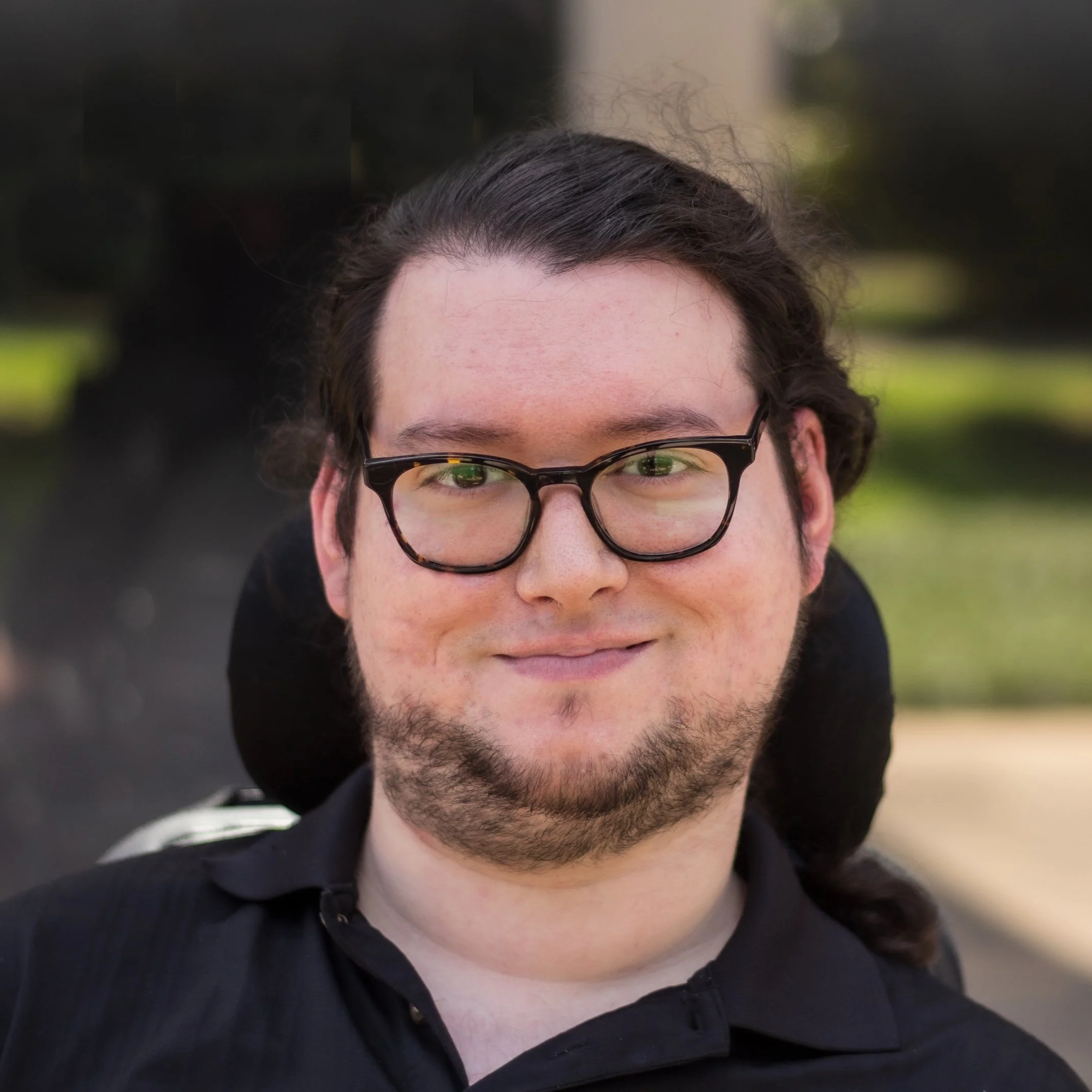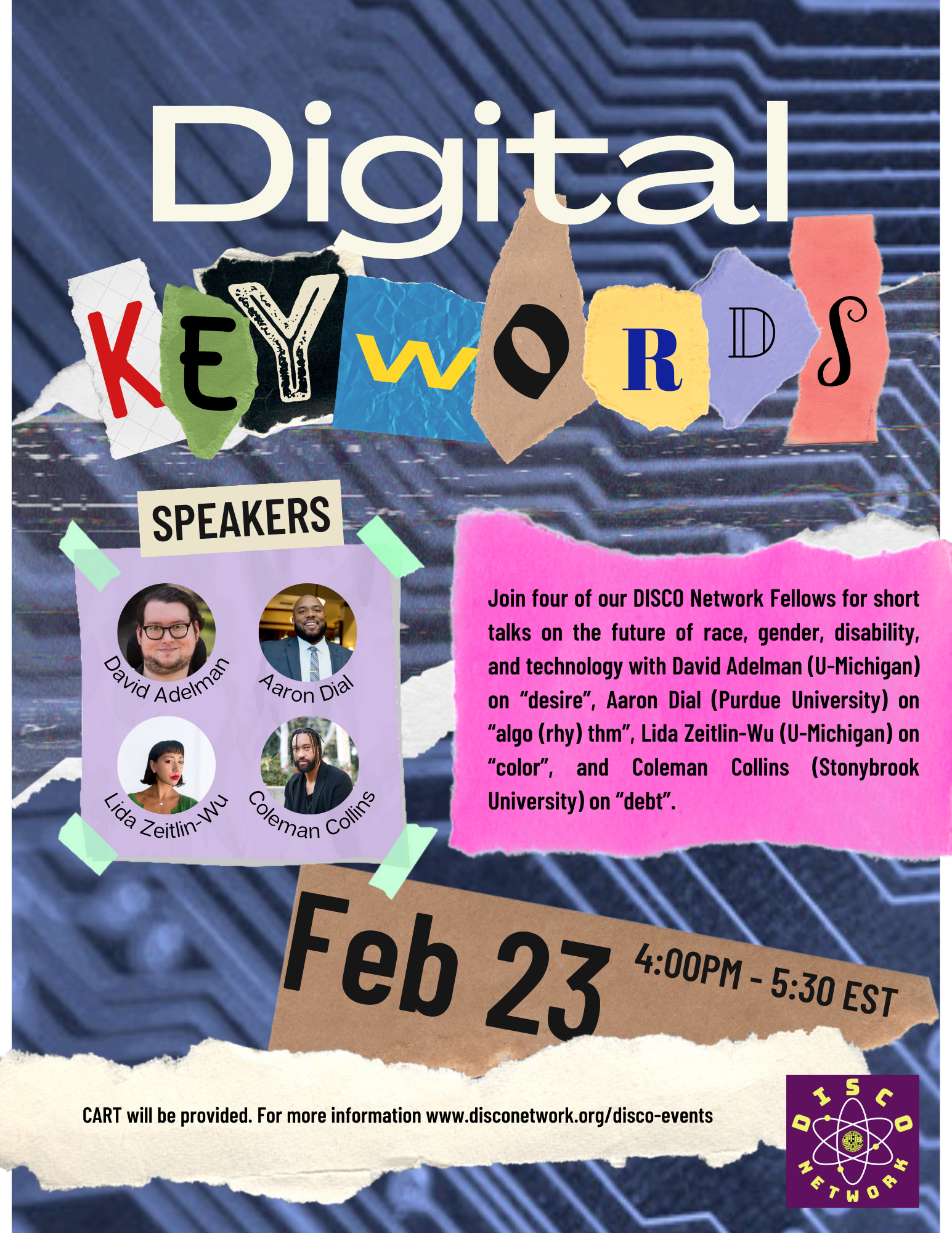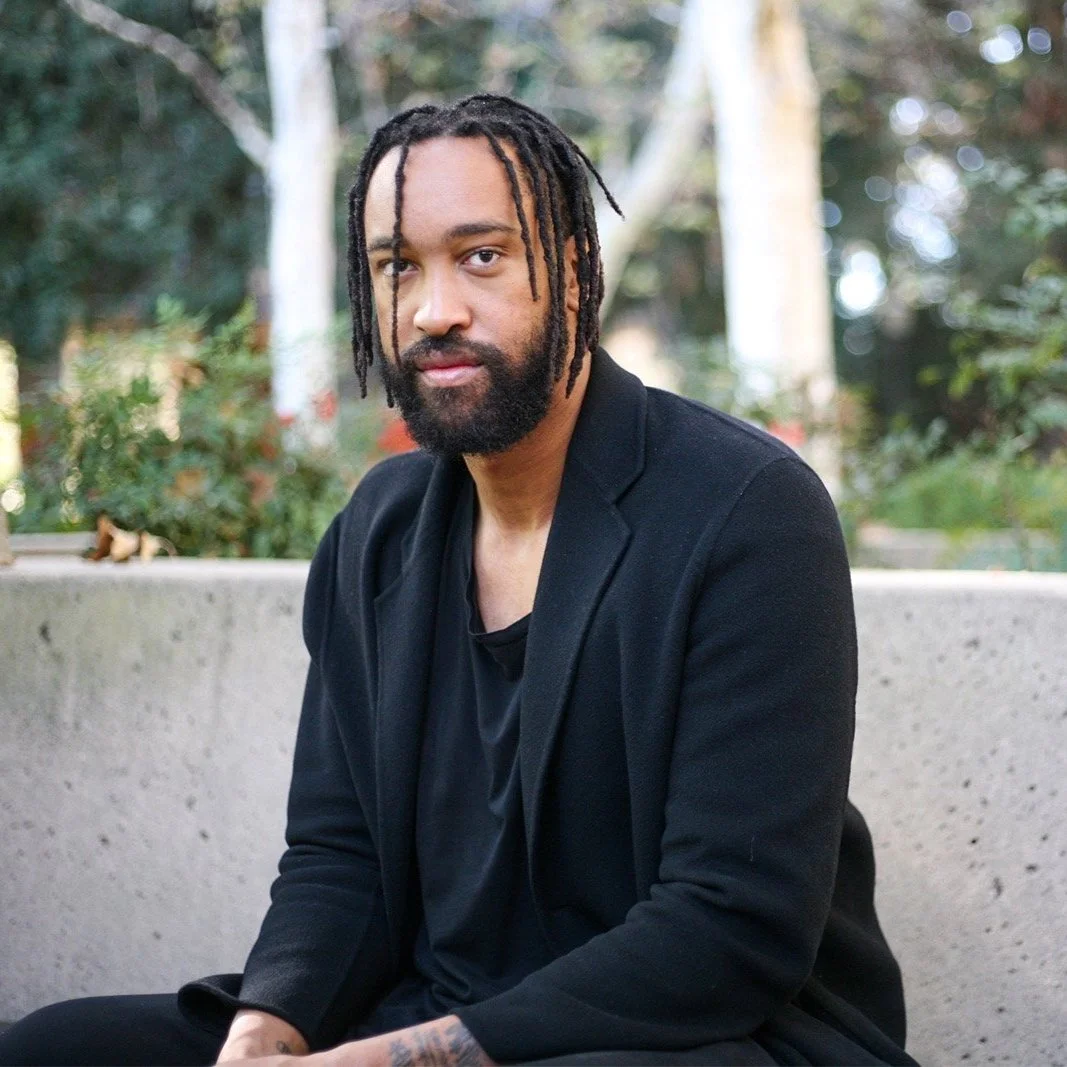Join four of our DISCO Network Fellows for short talks on the future of race, gender, disability, and technology with David Adelman (U-Michigan) on “desire”, Aaron Dial (Purdue University) on “algo (rhy) thm”, Lida Zeitlin-Wu (U-Michigan) on “color”, and Coleman Collins (Stonybrook University) on “debt”.
David Adelman is a postdoctoral research fellow at the Digital Accessible Futures Lab at the University of Michigan. His research interests center disability and crip studies, with a particular emphasis on disability media studies, digital disability cultures, disability film studies, and critical sexuality studies. Through an interdisciplinary crip studies/feminist lens, he pursues questions which emerge at the intersection of power, culture, technology, identity, and desire.
ID: Headshot of Aaron Dial
ID: Headshot of David Adelman
Aaron Dial earned his PhD from North Carolina State University in the Communication, Rhetoric, and Digital Media (CRDM) program where his expertise is in materialist and digital media studies, digital humanities, Black studies, and cultural studies of technology and race. These areas of expertise inform his research and teaching interests, which, broadly sketched, are affective labor, popular culture, urban spaces and temporal flows, and the nexus between sports and science and technology. He currently is a postdoctoral research fellow at The Humanities and Technoscience Lab at Purdue University.
ID: Headshot of Lida Zeitlin-Wu
Coleman Collins is an interdisciplinary artist and writer who explores the ways that small, iterative processes can have outsized effects over time. His work often identifies technological developments and relationships of debt and obligation as the modes through which these processes are enacted. He lives in New York, where he is currently serving as the inaugural DISCO Network Artist-in-Residence at Stony Brook University’s Future Histories Studio.
Lida Zeitlin-Wu is a scholar of screen-based media and visual culture whose research focuses on the commodification and quantification of sensory experience under global techno-capitalism. Her current book project, “Seeing by Numbers,” traces how color systems—diagrams and models that attempt to encompass the full range of human color vision—came to play a key role in engineering perception over the course of the 20th century. She is currently a postdoctoral research fellow at the University of Michigan focusing on DISCO’s curriculum goals.
ID: Headshot of Coleman Collins
Accessibility
CART will be provided.
If you have any questions or need event accommodations, please reach out to the DISCO Network at disconetwork@umich.edu.




